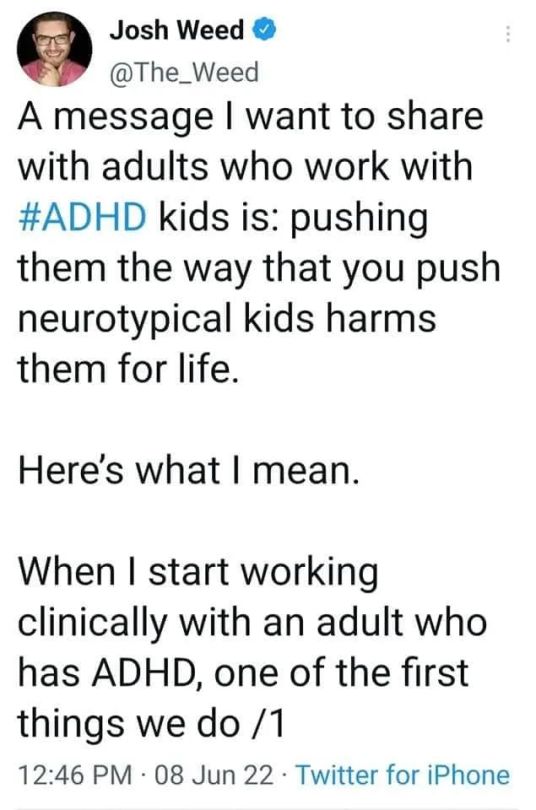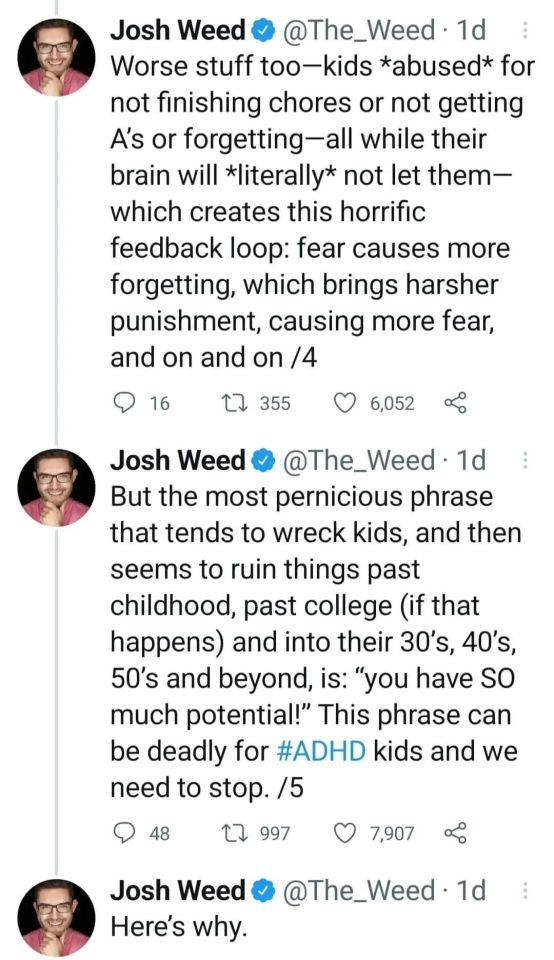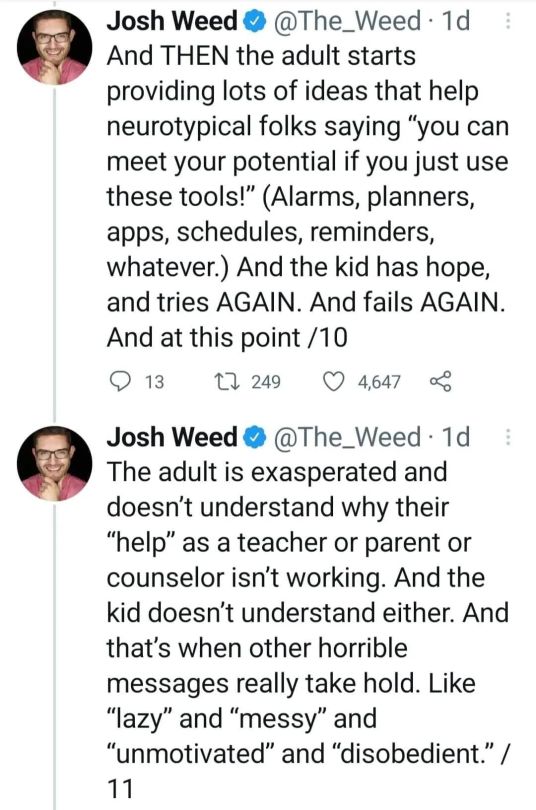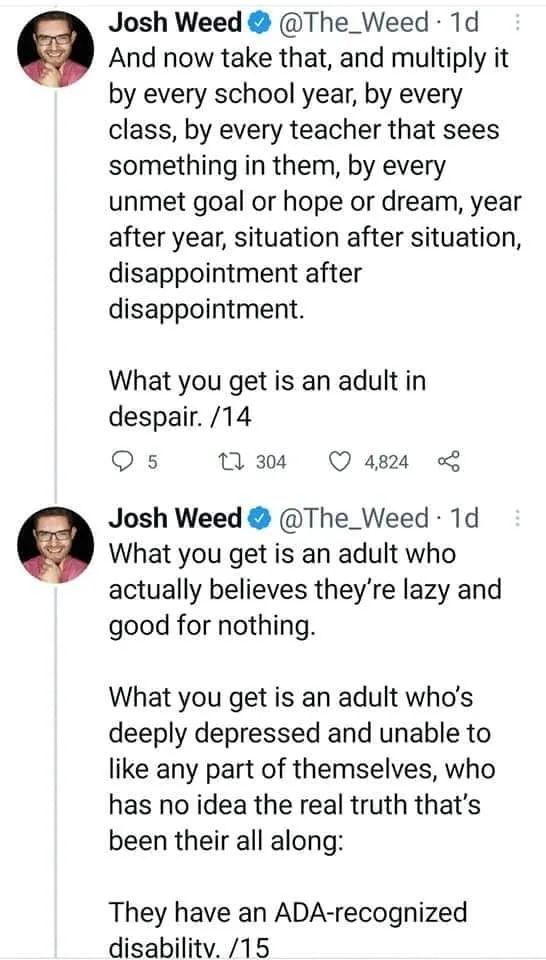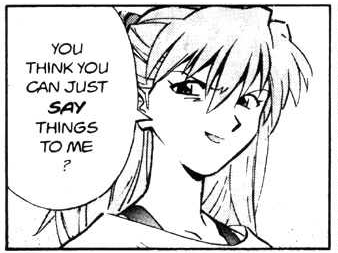Bipolaruchiha - 💜💛💚




More Posts from Bipolaruchiha and Others
somewhere around 60% of bipolarians are unemployed, and bipolar disorder is the sixth leading cause of disability in the world so here is a reminder that youre not alone. your worth is inherent and not linked to how well you can do a job. you have worth because you are alive not because you are able to produce labor for someone else. happy disability pride month to all the bipolarians who don’t or can’t have a job. I’m proud of you.
and for those who do work, 88% of bipolarians surveyed said that bipolar disorder affected their ability to perform at work, so if you work and struggle, here is a reminder that you’re not alone. I recognize the struggles you face, from those caused directly by your illness, to discrimination, to working hard to appear “normal,” your efforts dont go unnoticed. your worth isnt defined by how well you do your job, either. happy disability pride month to all the bipolarians who struggle through their work but still manage to get it done. I’m proud of you, too.


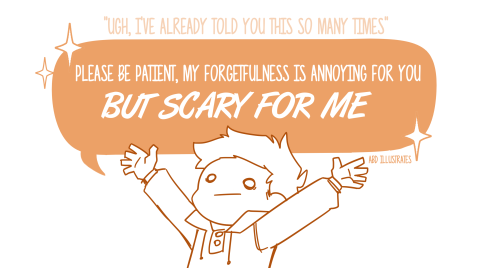

October is ADHD awareness month! 🎉
The memory issues ADHD causes are some of the scarier and more frustrating parts of living with it - so here’s a set of reaction doodles that all my fellow ADHD peeps are welcome to use whenever anybody decides to comment on your forgetfulness ^
adulthood really does hit you like a fucking truck when you spent all of your teenage years thinking you were gonna kill yourself eventually,
I find myself explaining to people a lot recently why using "bipolar" "narcissistic" "psychopath" etc is an issue, because it can be hard to articulate in the moment, so here it is all together:
The terminology that is related to certain conditions, disorders, and neurotypes being appropriated by others to be used in commonplace situations necessarily creates problems for those whose conditions these terms are supposed to belong to and help. It stigmatises certain behaviours, makes them the butt of the joke, or underplays how debilitating they can be.
For someone who has to live with bipolar disorder, people using "bipolar" or "mania" loosely suggests that the actual bipolar people are overreacting, or else that their condition is a joke when in fact this condition not only hinders them in an ableist world, but also brings violence and discrimination against them because of the condition.
Such also is the case for personality disorders and complex disorders like schizophrenia. Using "psychotic" as an insult or a modifier erases the fact that it's a condition which most aversely affects the psychotic person, it stigmatises them as dangerous when in fact psychotic people are the ones more likely to receive violence than inflict it statistically and historically.
Saying psychopath when you mean a serial killer and sociopath when you mean someone who is cruel is also wrong in that same vein because these are ((now redundant)) subtypes of anti social personality disorder, which does not make people more likely to cause harm or to be "evil" or abusive, but rather causes issues in their own lives due to a lack of empathy, which must also not be confused with a lack of compassion.
Narcissistic personality disorder similarly is a cluster of self esteem issues, identity crisis, and a fragmented sense of self that shows itself in certain behaviours. Borderline personality disorder also is similarly stigmatised, when in fact people with this disorder are far more likely to be victims of abuse. Terms like "narcissistic abuse" or "borderline abuse" suggest that these people abused you because of their disorder, which is not at all true, and any idea of abuse can already be encompassed simply by calling it "abuse" plain and simple rather than stigmatizing a bunch of people in the process of this.
All of these disorders, though not curable, still are treatable in that people are trying to get help and adjust to life despite their symptoms. This only becomes possible as long as these symptoms and terminologies are not stigmatized any further by an ableist society. The terms used to describe these disorders are meant to HELP the people with those disorders. Not to become an excuse to treat these people worse and make them feel unwelcome.
this is so petty but i hate how bipolar is treated like one of the big scary disorders but never talked about as one. people on here will talk about ending the demonization of ‘scary disorders’ like personally disorders and schizophrenia and did but not include bipolar despite being seen and treated by the general public as a ‘scary’ disorder. I had a mental health advocate tell me bipolar doesn’t count because it’s a mood disorder and therefor treated the same as gad and depression and i just. have you met a bipolar? listened to our symptoms? have you listened to doctors talk about us? our abuse rates? our suicide and alcoholism rates? the distain the public has for us? just include us in your positivity and advocacy please. im not asking for much
i feel like tumblr has kind of changed the meaning of the word "echolalia" into something that can be more precisely described with "vocal stimming." people on here use echolalia to mean "repeating a word or phrase over and over because it feels good" which fits the definition of vocal stimming. that's the established term for doing that; echolalia usually means something else.
the classic meaning of echolalia isn't repeating a word that sounds good, but is actually a conversational pattern where one person repeats the last thing that got said. for example, someone might say to me, "i'll bring you the rest of the articles tomorrow" and i'll reply back "articles tomorrow." it could also be just repeating yourself after you've finished talking, like i'll say a sentence, think i'm done, then catch myself repeating the last few words of the sentence.
i also do this in ASL, so it isn't just about the mouth-feel of the words. also the words don't necessarily have to be particularly pleasing or stand out in any way. when i do it, i'm not even really trying to communicate anything, it's just how i process language. that's different from vocal stimming, which is when a word is so pleasing to say that you say it over and over again.
the reason i care about this distinction is that echolalia is a majorly stigmatized feature of autism (though it also occurs in other neurodevelopmental conditions that affect language). it's often seen as a sign that an autistic person is "low functioning" or as something to be trained out through ABA. i've never met another autistic adult with echolalia, and when i do it, it confuses the hell out of whoever i'm talking to unless they know about it as an autistic thing. i just hope that other autistic people with echolalia know that they aren't the only one who does this, and it isn't anything to be ashamed of
-
 ocdishell reblogged this · 1 month ago
ocdishell reblogged this · 1 month ago -
 damienthirst liked this · 2 months ago
damienthirst liked this · 2 months ago -
 herehaveafandom reblogged this · 3 months ago
herehaveafandom reblogged this · 3 months ago -
 looneygoons liked this · 4 months ago
looneygoons liked this · 4 months ago -
 crystalheartsam liked this · 5 months ago
crystalheartsam liked this · 5 months ago -
 alirasworlds reblogged this · 5 months ago
alirasworlds reblogged this · 5 months ago -
 thatonefurryartist liked this · 5 months ago
thatonefurryartist liked this · 5 months ago -
 vinnival reblogged this · 5 months ago
vinnival reblogged this · 5 months ago -
 ponderedfallout reblogged this · 5 months ago
ponderedfallout reblogged this · 5 months ago -
 ponderedfallout liked this · 5 months ago
ponderedfallout liked this · 5 months ago -
 softlyproblematic liked this · 5 months ago
softlyproblematic liked this · 5 months ago -
 mystorl reblogged this · 5 months ago
mystorl reblogged this · 5 months ago -
 doc-main liked this · 5 months ago
doc-main liked this · 5 months ago -
 nonbinarymissingno reblogged this · 5 months ago
nonbinarymissingno reblogged this · 5 months ago -
 adolescenceknight liked this · 5 months ago
adolescenceknight liked this · 5 months ago -
 archetypalheart reblogged this · 5 months ago
archetypalheart reblogged this · 5 months ago -
 checkeredguts liked this · 5 months ago
checkeredguts liked this · 5 months ago -
 drinking-with-cupid liked this · 5 months ago
drinking-with-cupid liked this · 5 months ago -
 perfectlyzealousperfection liked this · 5 months ago
perfectlyzealousperfection liked this · 5 months ago -
 rainyartisanwombat reblogged this · 5 months ago
rainyartisanwombat reblogged this · 5 months ago -
 rainyartisanwombat liked this · 5 months ago
rainyartisanwombat liked this · 5 months ago -
 angelfacemjj liked this · 5 months ago
angelfacemjj liked this · 5 months ago -
 fluttrmuush reblogged this · 5 months ago
fluttrmuush reblogged this · 5 months ago -
 fluttrmuush liked this · 5 months ago
fluttrmuush liked this · 5 months ago -
 sins-of-vesper reblogged this · 5 months ago
sins-of-vesper reblogged this · 5 months ago -
 sins-of-vesper liked this · 5 months ago
sins-of-vesper liked this · 5 months ago -
 theinsterminators liked this · 5 months ago
theinsterminators liked this · 5 months ago -
 june-npc liked this · 5 months ago
june-npc liked this · 5 months ago -
 shadowspirez liked this · 5 months ago
shadowspirez liked this · 5 months ago -
 mav-again liked this · 5 months ago
mav-again liked this · 5 months ago -
 crumbsonpapers liked this · 5 months ago
crumbsonpapers liked this · 5 months ago -
 theriocider liked this · 5 months ago
theriocider liked this · 5 months ago -
 wasteisolat10n liked this · 5 months ago
wasteisolat10n liked this · 5 months ago -
 fe3lthethunder liked this · 5 months ago
fe3lthethunder liked this · 5 months ago -
 fledglingmaster reblogged this · 5 months ago
fledglingmaster reblogged this · 5 months ago -
 freerangeandroidgirl liked this · 5 months ago
freerangeandroidgirl liked this · 5 months ago -
 idontknow-andyoudonteither liked this · 5 months ago
idontknow-andyoudonteither liked this · 5 months ago -
 biboywoofz liked this · 5 months ago
biboywoofz liked this · 5 months ago -
 grandmas-succ reblogged this · 5 months ago
grandmas-succ reblogged this · 5 months ago -
 i-put-the-wit-in-dimwit reblogged this · 5 months ago
i-put-the-wit-in-dimwit reblogged this · 5 months ago -
 i-put-the-wit-in-dimwit liked this · 5 months ago
i-put-the-wit-in-dimwit liked this · 5 months ago -
 zer0-has-gr8-tits reblogged this · 5 months ago
zer0-has-gr8-tits reblogged this · 5 months ago -
 seraph-needs-help liked this · 5 months ago
seraph-needs-help liked this · 5 months ago -
 sunsetcarnation264 reblogged this · 5 months ago
sunsetcarnation264 reblogged this · 5 months ago -
 hhh-hemogoblin liked this · 5 months ago
hhh-hemogoblin liked this · 5 months ago -
 shiisiln liked this · 5 months ago
shiisiln liked this · 5 months ago -
 timeoflittlebells liked this · 5 months ago
timeoflittlebells liked this · 5 months ago -
 abaecchios liked this · 5 months ago
abaecchios liked this · 5 months ago -
 xesaystiv liked this · 5 months ago
xesaystiv liked this · 5 months ago
